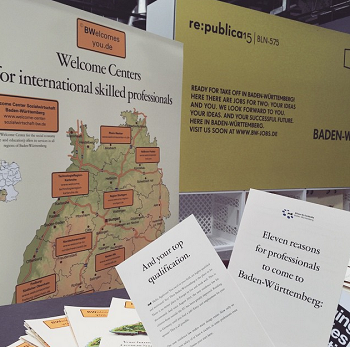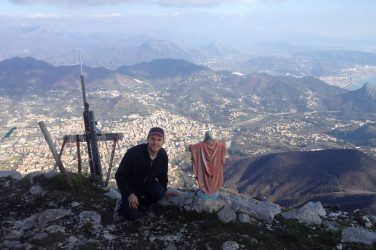For me, Berlin Web Week 2015 was a nostalgic celebration. It signified my one-year anniversary with my expat hometown: my Berlinniversary, if you would.
I moved to Berlin after a year in San Francisco (where I fell in love with tech, but sadly, not with the city). Arriving for Web Week last year felt like that classic breath of fresh air. The Berlin tech community was and remains small, young, and excited. The cut-throat, go-big-or-go-home mentality that’s so deeply ingrained in American culture hasn’t made it to the European “startup” world yet. There’s a camaraderie here, between businesses and between founders, that makes you feel as if the city is one giant university campus – everyone rushing around, working on their own thesis projects.
This year’s re:publica, which markets itself as the biggest conference on Internet and society in Europe, was one of the capstone events of May’s Web Week calendar. The conference boasts almost 7000 attendees over three days, and a huge, diverse collection of speakers: artists, politicians, hackers, makers and university professors all under one roof.
The conference was a sprawling, indoor-outdoor experience. Hosted at the industrial-chic Station Berlin, a former 19th century railway station turned seven-room event centre in the middle of the city, re:publica was a welcome reminder of how massive and diverse the European technology and innovation community has become.
While exploring my way through re:publica’s panels, talks, and interactive booths, I was reminded of several reasons why I’m so fond of European tech and the Berlin innovation community:

Diversity and Inclusion
I continue to be deeply impressed by Europe’s investment and interest in skilled foreign labor, feminism, parenting rights, and emerging markets. The re:publica conference team was fiercely proud to boast 50% female speakers. Better still, a dedicated playground centre for parents and children.
Personally, I also got a kick out of seeing the entire southwestern German state of Baden-Württemberg set up in a booth, offering visa and employment assistance for highly skilled labourers. (As an expat who exported myself, I would have wept with happiness at seeing this kind of eager welcome when I was booking my flights last year.)
Art, Music and Fashion
This also falls into inclusion, for me. Tech conferences these days are trying to one-up each other left and right. At re:publica, the mashup of disciplines from the arts and sciences. Three highlights stick out for me:
- There was an entire content track dedicated to fashiontech, with startups spanning from hardware to fashiontech houses discussing design and functionality – and how technology will quickly progress past the gadgets and screens of today.
- Talenthouse is a platform and agency which describes itself as “a global community for creatives from all artistic fields”. It was set up on the main floor with four or five artists doing on-the-spot portraits in pencil, paints, and watercolours. There was a queue and everything. It’s great to see that the European business world seems excited about, and proud of, learning how to leverage its creative culture and artistic history.
- The makers, the makers, the makers. There seemed to be some kind of 3D printing or drone-making happening everywhere you looked. At one point, I saw a drone carrying balloons through the main hall. Physical product innovation (i.e. hardware) has a strong voice in Berlin. (Personally, I like to see the maker movement as a true evolution of Germany’s manufacturing heritage.)
Global Perspective
I met makers from Africa. Representatives from Doctors Without Borders. I saw a talk about editorial censorship in southeast Asia, and another one about how Facebook drastically affected recent Romanian elections.

All of Germany is an innovation hub – not just Berlin!
Coming from the States, which can be a bit of an island unto itself as far as international perspective goes, it’s both a challenge and a thrill to tackle internationalisation in a practical way. This kind of global mindset goes beyond “launching in a new market” and instead considers the impact that one can make using technology to reach a worldwide audience.
Tech is a state of mind
I grew up on the phrase “melting pot” – but I’ve never seen that ring truer than I do daily in Berlin.
The technology scene may be young still, but it’s filled with a wonderful optimism, a much-needed hopefulness and empowerment to change the world. As for me, I will continue to champion this ever-expanding community, and help channel its enthusiasm into progressive businesses and projects.
Until next year, Berlin Web Week.
Cover photo: Alexa Shoen *Image cropped by E&M




